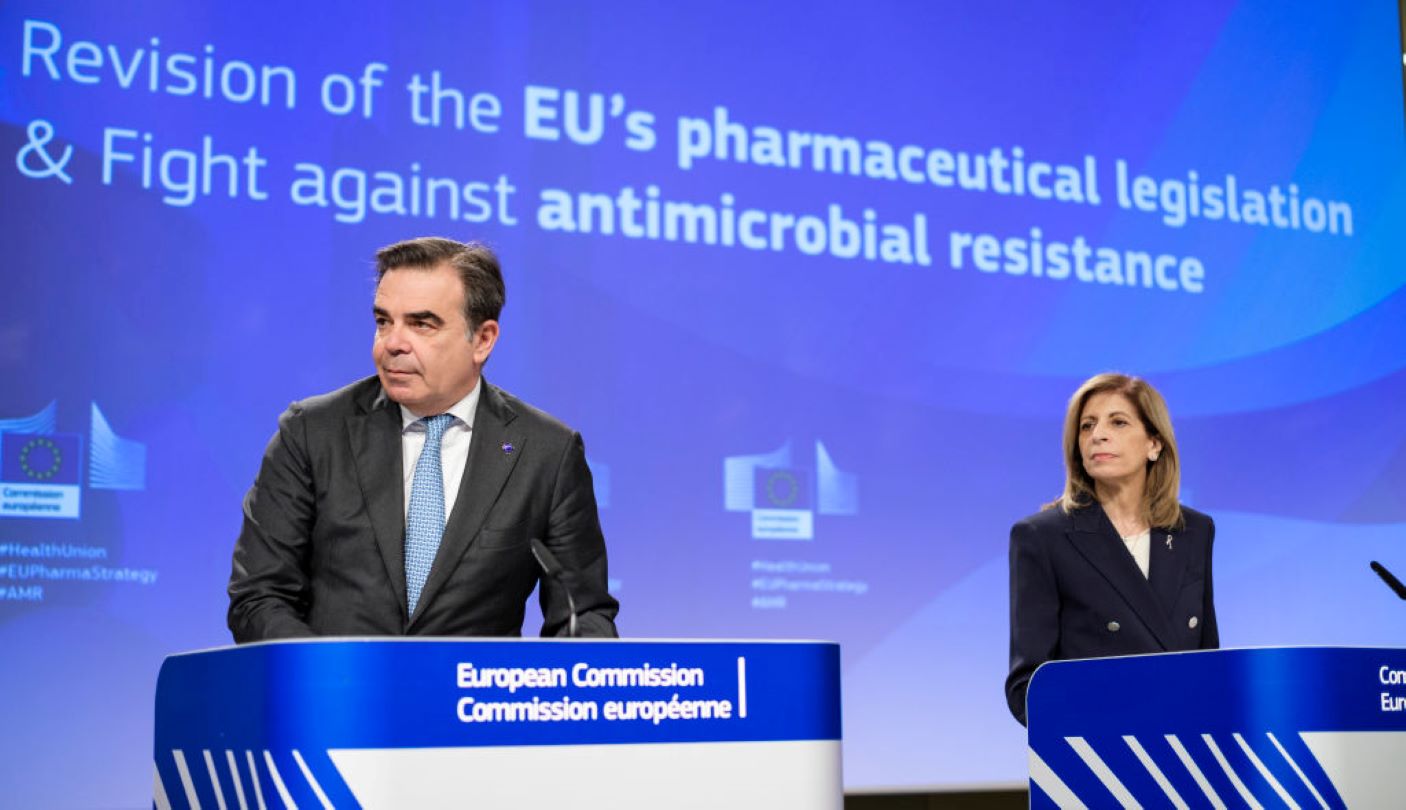
Since a draft version was leaked in April, the European pharmaceutical legislation has stayed at the forefront of discussions in the pharmaceutical and biotech industries. Claire Skentelbery, the director general of EuropaBio, Europe’s largest bioindustry group, described it as “the largest legislative change in the pharmaceutical landscape for 20 years.” Despite some positive changes however, many in the sector have concerns about its impact on the European market.
At the recently concluded BIO-Europe conference 2023, Skentelbery said the legislation will likely affect investments, business locations and employment-related decisions, amongst others.

Discover B2B Marketing That Performs
Combine business intelligence and editorial excellence to reach engaged professionals across 36 leading media platforms.
The legislative reform brings forth a range of changes including alterations to data protection durations and the regulation of orphan drugs. Firstly, the European Commission (EC) plans to reduce the standard length of time for data protection of pharmaceutical products from seven to five years. The two years could be gained back if companies launch their drugs in all 27 member states at once or run comparative clinical trials, amongst other measures.
The regulator aims to improve access to drugs and ensure that quality data is submitted for approval. However, Skentelbery was concerned that it may have unwittingly, disadvantaged small companies who may struggle to gain investment. The EC has not submitted a clear timeline for adoption of the reform, but Skentelbery predicts that the legislation will likely come into shape in the next two to three years.
In an exclusive interview with Pharmaceutical Technology, conducted on the sidelines of the conference, Skentelbery discusses the impact of the reform, suggesting ways to improve the legislative proposal.
This interview has been edited for length and clarity.

US Tariffs are shifting - will you react or anticipate?
Don’t let policy changes catch you off guard. Stay proactive with real-time data and expert analysis.
By GlobalDataAkosua Mireku [AM]: At BIO-Europe 2023, you mentioned issues with the new incentives for doing initial launches for drugs across all EU member states. What are the potential flaws of this approach?
Claire Skentelbery [CS]: The challenge is that access to healthcare is a member-state competence, and each member state has a different mechanism of bringing drugs through to the market. There are 27 different processes in 27 countries. This makes it extremely difficult to launch in all countries within two years and for some it is impossible.
You have to think about the smaller countries. They do not have the capacity to process every single drug at once at a national level.. This is why the conditionality of two years makes the industry very nervous. We liked the idea of decoupling the conditionality……that way we [pharmaceutical companies] are not wasting time, or overwhelming national regulatory processes and countries can choose which drugs are important for their populations. That gives much more certainty to small companies. However, starting with it [drug launches] having to be everywhere in two years is too much.

AM: Can you elaborate on how this proposed reform will particularly affect small to mid-size biotech companies?
CS: Small companies do not have whole teams dedicated to market access. Also, typically, small companies will have an investment round approximately every two years. If they have a scenario of reduced protection of intellectual property, by the conditionality of launching in all member states, this affects investments.
In our recently published report, we found that investors will only take the lowest certain number of years to calculate the net value of a company. Thus, they are not interested in considering two years linked to access in all the EU member states, and valuations will be based on five years rather than seven years. This means that the drug will need to make it to market much faster and the drug must be sold at a much higher cost because it has less time with market exclusivity. Thus, it makes it much harder for small companies to attract investment earlier in their pipelines. On the other hand, large companies can make long-term strategic decisions. Smaller companies are not looking at 25 years’ worth of cash flow. They can see the bottom of their bank accounts.
AM: Are there any new measures, for example those related to rare disease drug development, that could be further causes for concern?
CS: We are concerned about changes to market exclusivity for orphan medicines. There was no time frame for that before and now it is being proposed to be seven years.
Most companies that work with rare diseases are smaller companies. It takes them longer to get a drug to approval. Those companies really need the extra time, and they need the exclusivity for financial reasons. They are kind of stuck between a rock and a hard place. We would like the EC to remove the time limit on this to reduce the strain on those companies.
These measures have been justified by saying the US gives the same seven years on the data protection expiration date, but the US has a lot more things that enable companies to get to market faster. It has more funding opportunities, and quicker reimbursement times. The orphan drug legislation that we currently have has done a really good job. If they remove that, those companies will simply exit that rare disease area because they will not be able to gain sufficient investments to enter the market.
AM: In that case, how do we speed up access to orphan medicines in a way that avoids these issues?
CS: We would like to see more data protection for small companies. This would allow the small companies to receive more investment and they would be able to sell the drugs for less money, because they know they have a longer time to make that investment count. The price is always bound to be higher if they have such a short period of time [to have exclusivity].… A knock on effect is that if a large company makes the decision to exit a disease area with an unmet need, smaller companies will exit that area as well, because the smallest companies very rarely go to market themselves.
AM: Were there any measures in the proposed reform that were a welcome addition. What do you think are the next steps on this?
CS: We were really happy to see regulatory sandboxes brought in. (The EC defines a regulatory sandbox as “a tool allowing businesses to explore and experiment with new and innovative products, services or businesses under a regulator’s supervision”).We were also really happy to see transferrable vouchers for infectious disease agents, tackling antimicrobial resistance…
We would like to see the definition of a small company in the context of biotechnology. In other industries small companies can hire less than a hundred people to run effectively, but in the pharmaceutical industry, it can take 1,000-2,000 people to run a small biotech. They also talked about speeding up the regulatory process for drug approval. Anything that makes it easier to get to market is welcome. It is one thing to say we want to do this faster, and it is another to look at the resources needed and how national regulators will need to operate.




